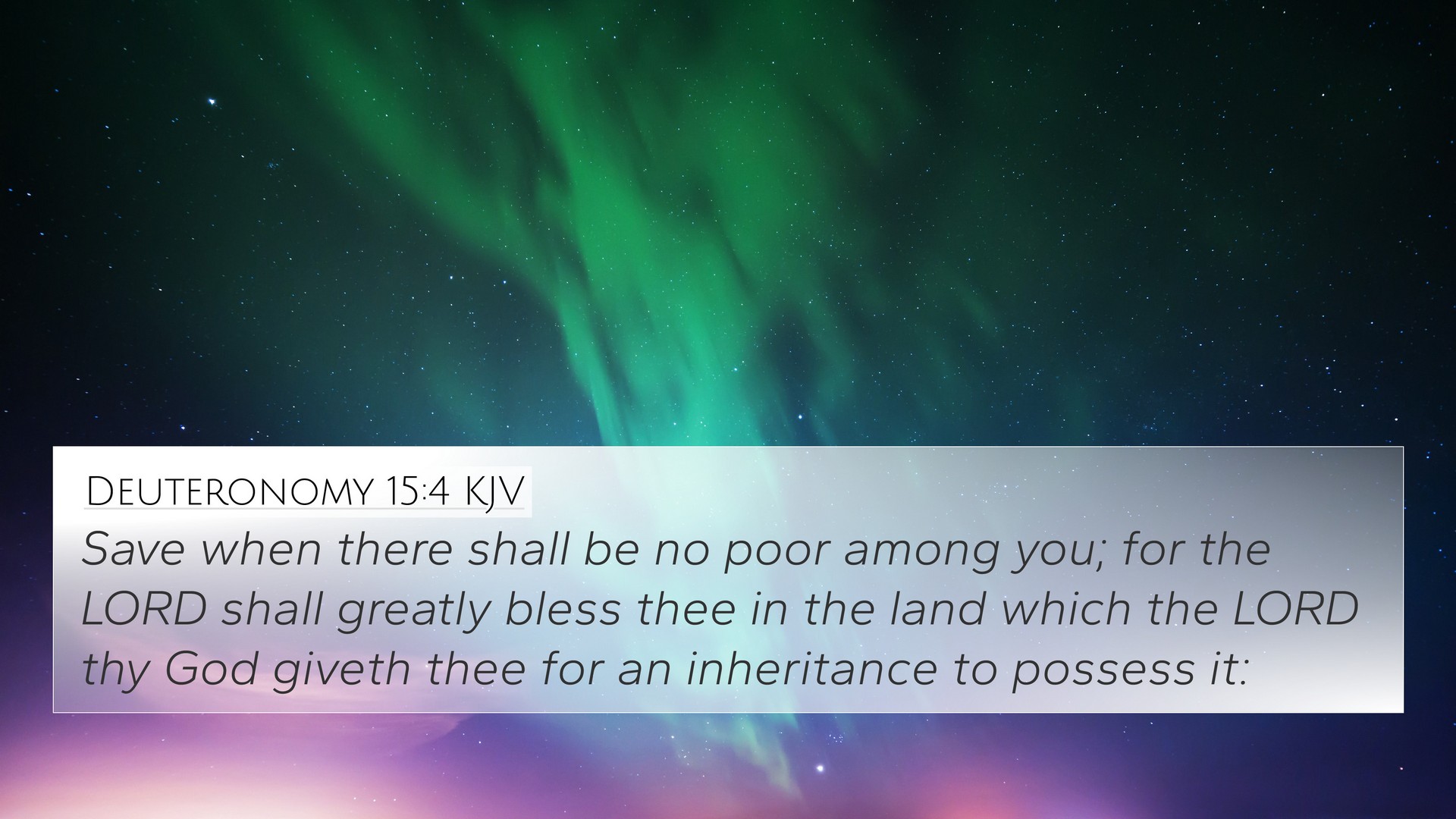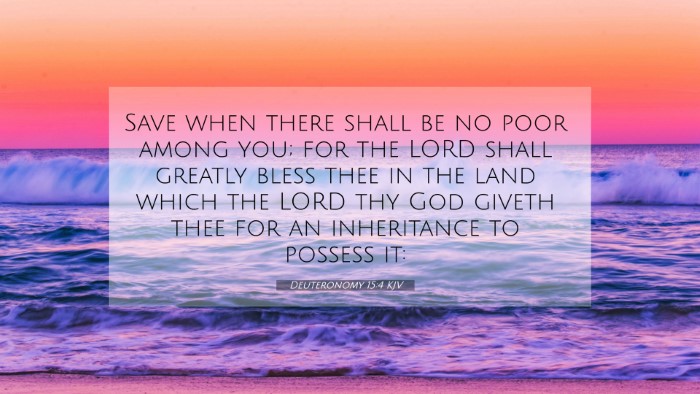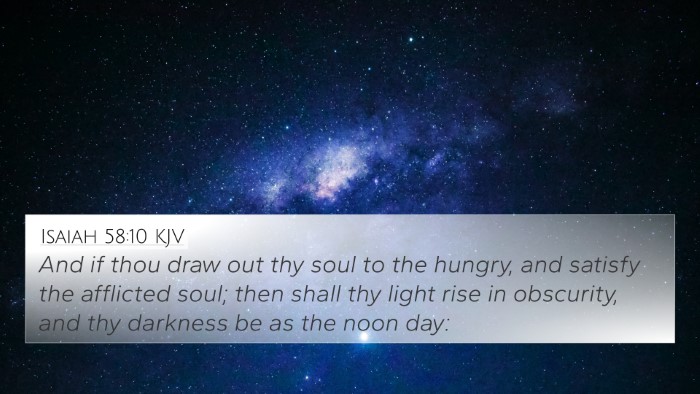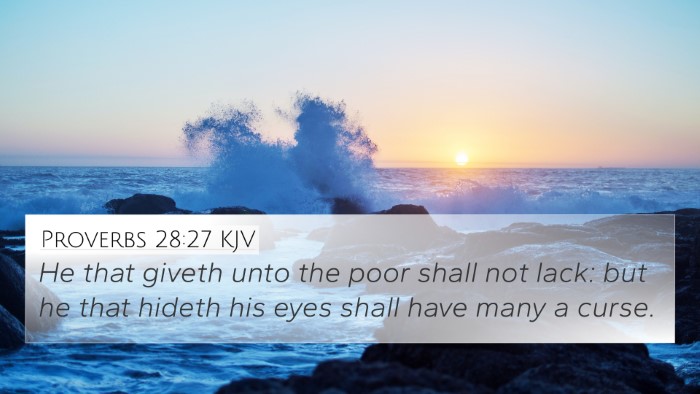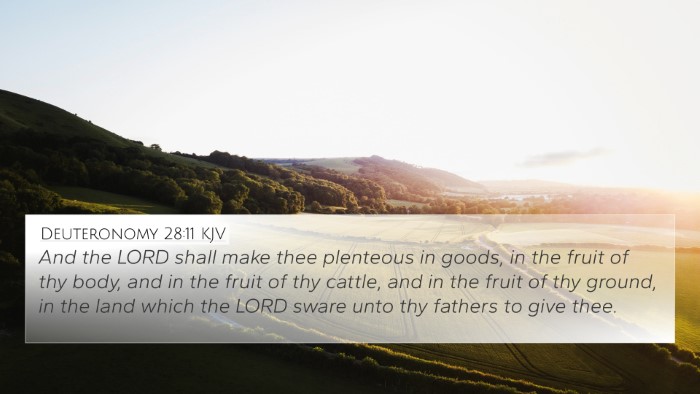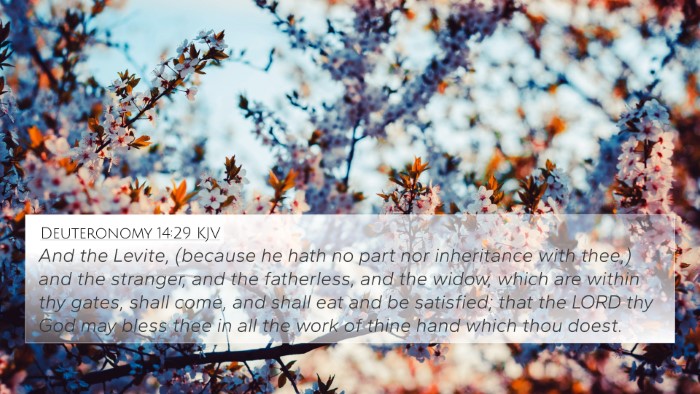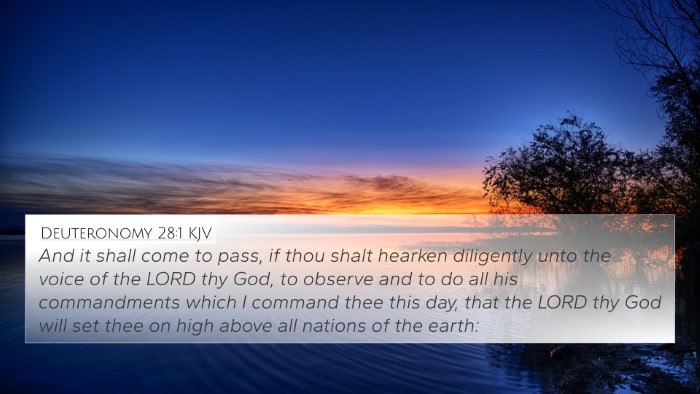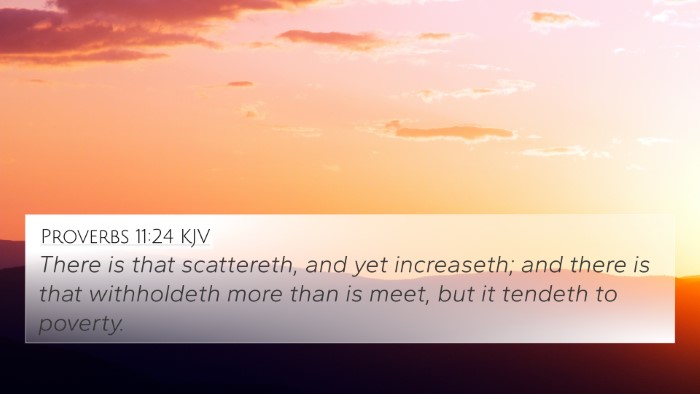Deuteronomy 15:4 - Interpretation and Understanding
Verse Reference: Deuteronomy 15:4
"However, there need be no poor people among you, for in the land the Lord your God is giving you to possess as your inheritance, he will richly bless you."
Summary of Meaning
Deuteronomy 15:4 emphasizes God's intention for His people to live in abundance and the profound responsibility of the community towards the welfare of its members. This verse articulates a divine provision aimed at eliminating poverty among the Israelites, reflecting God's desire for prosperity and social justice. It is an assurance that as long as they adhere to His commands, they will experience His blessings, which precludes the existence of severe need within the community.
Insights from Commentaries
-
Matthew Henry's Commentary
Matthew Henry notes that this verse serves both as a promise and a moral obligation. God’s blessings are contingent upon the obedience of the people and their commitment to caring for one another. Henry underscores that the existence of poverty should not be a reality among the people of God, as He provides ample resources for everyone's needs.
-
Albert Barnes' Commentary
Barnes highlights the prophetic vision of a society founded on equity, where poverty is eradicated. He points out that by following God’s laws, they are assured of bountiful harvests and economic stability, which is essential for communal harmony. He suggests that the aim is not just a physical absence of poverty but a spiritual wealth which grows from mutual support and community enrichment.
-
Adam Clarke's Commentary
Clarke interprets the verse as a teaching on divine provision. He explains that God assures His people that they shall have ample sustenance in the Promised Land, emphasizing the necessity for the Israelites to cultivate a heart of generosity towards the less fortunate. Clarke indicates that this serves as a foundation for future social laws governing charity and support for the poor.
Cross-References for Deuteronomy 15:4
- Exodus 23:11: Discusses the concept of rest for the land and provision for the poor every seventh year.
- Leviticus 25:35: Advises the Israelites to support fellow Israelites who have fallen into poverty.
- Psalm 41:1: "Blessed is the one who considers the poor!" - Highlights the blessedness of caring for the needy.
- Acts 4:34-35: Reflects the early church practice of sharing possessions to meet community needs.
- 2 Corinthians 9:9: Quotes Psalm 112:9, emphasizing the righteousness of those who give to the poor.
- 1 John 3:17: Discusses the moral obligation to help our brothers in need.
- Proverbs 19:17: "Whoever is generous to the poor lends to the Lord," indicating that helping the needy is a form of service to God.
- Matthew 26:11: Jesus acknowledges that the poor will always be present, implying the ongoing need for care and support.
- James 2:15-16: Addresses the necessity of practical help for those in need within the community of faith.
Connections and Thematic Analysis
This verse connects significantly with broader biblical themes of justice, mercy, and communal responsibility. By examining it alongside other scriptures, we can see a consistent biblical ethic regarding how to treat the less fortunate. The emphasis is placed on the community's role in uplifting the impoverished and the expectation of divine provision when the community follows God's ways.
Scriptural Cross-Referencing Techniques
To explore the depths of understanding in the scripture, one can utilize various tools for Bible cross-referencing, such as Bible concordances and cross-reference guides to trace thematic connections throughout the biblical narrative. Engaging in comparative Bible verse analysis can help illuminate the ways different parts of the Bible reinforce each other and collectively shape the understanding of God's will for His people.
Effective Methods for Cross-Referencing
In studying this verse, a few methods can enhance one's understanding:
- Utilizing a Bible concordance to locate related scriptures based on keywords.
- Employing cross-reference guides which provide systematic ways to trace topics and themes.
- Being mindful of inter-Biblical dialogue when studying both Old and New Testament writings.
- Considering how different books of the Bible speak to similar themes, such as social justice, mercy, and divine provision.
Conclusion
Deuteronomy 15:4 stands as a powerful reminder of God's desire for His people to live in a society free of poverty through communal cooperation and support. Understanding this verse through various cross-references allows for a deeper insight into God's intentions and the ethical expectations He places on His followers. By linking these biblical texts, we can draw richer meanings and practical applications for today’s societal challenges.
